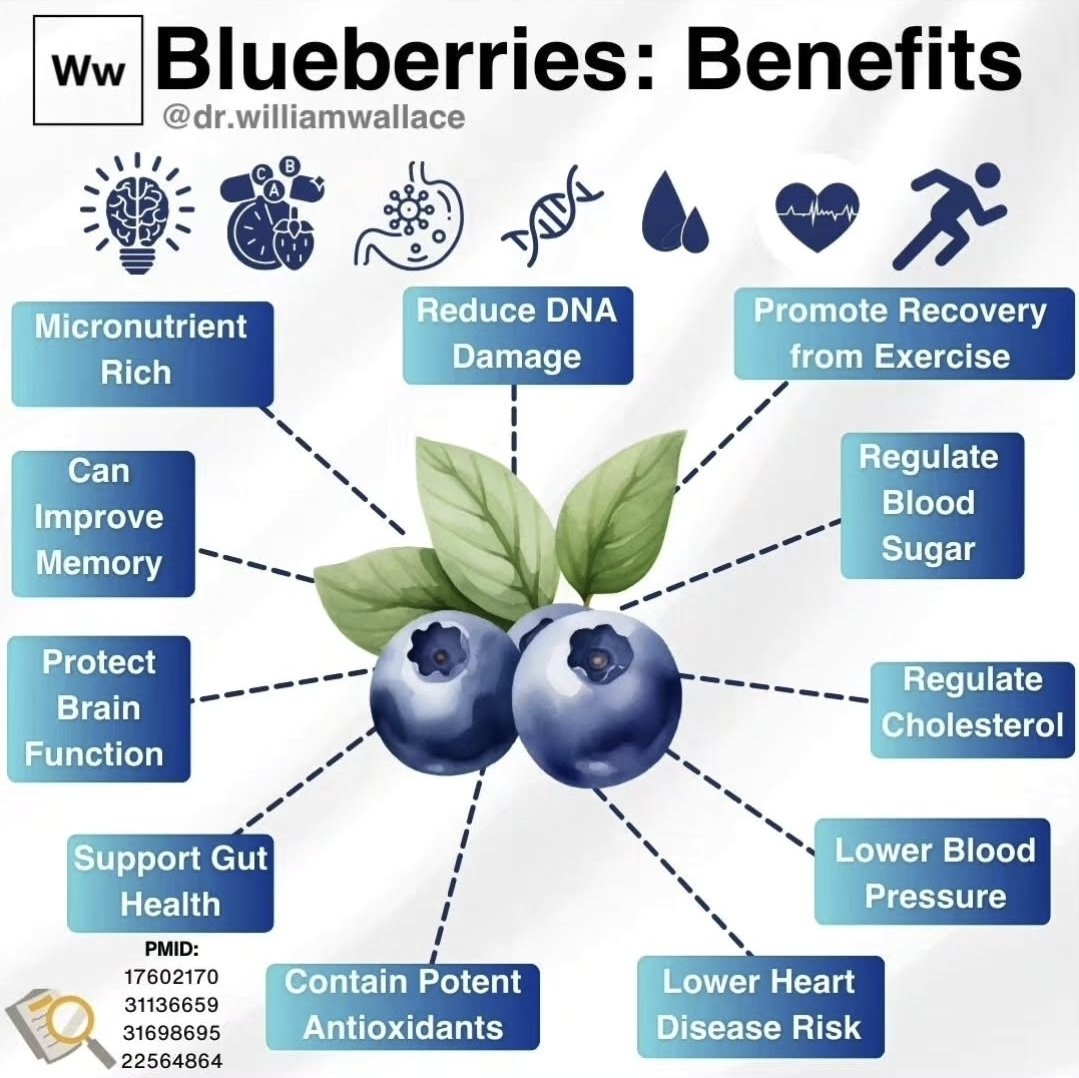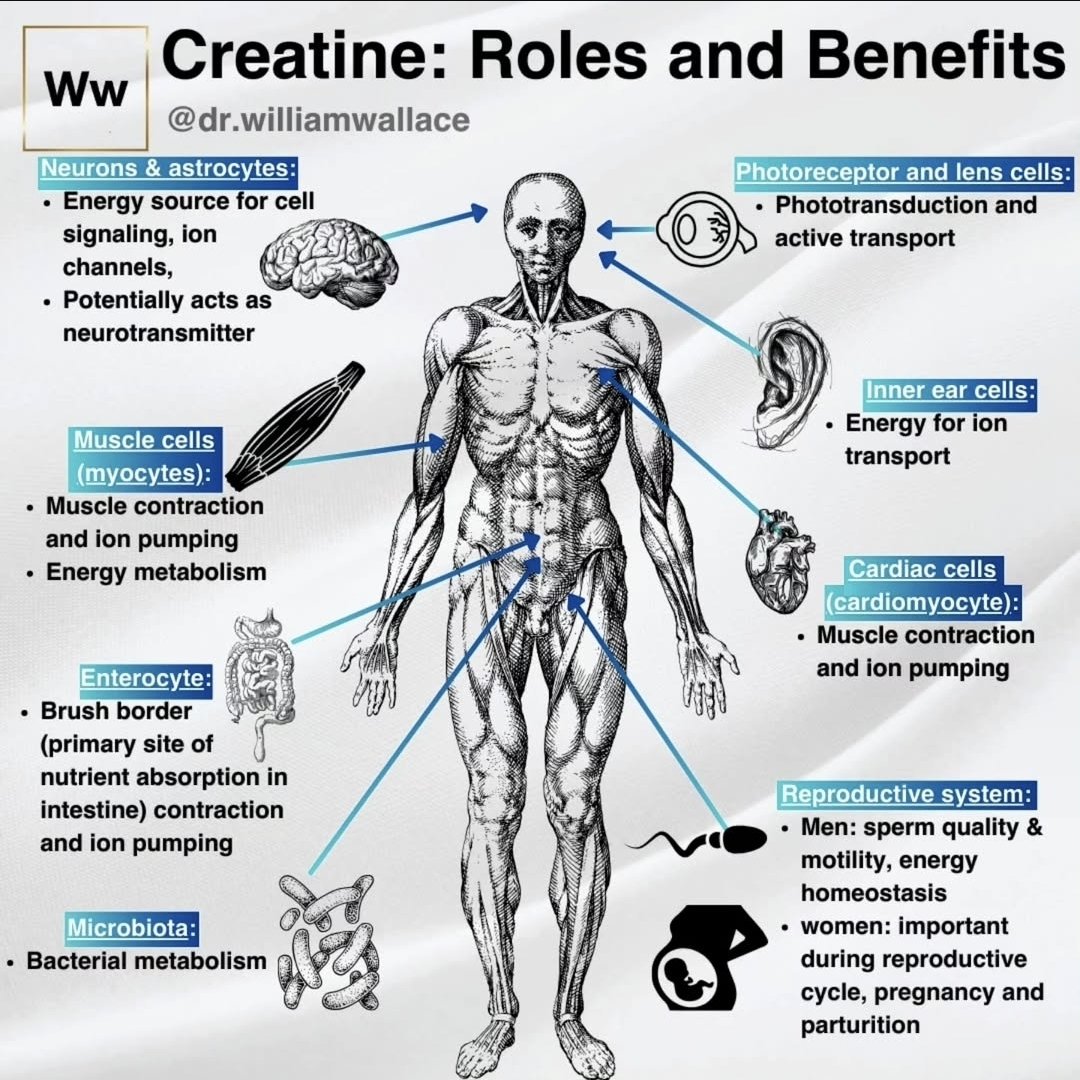
William A. Wallace, Ph.D.
@drwilliamwallac
• Scientist | Director, Product Development & Scientific Affairs • R&D | Innovation Strategy | Formulation | Regulatory • Health Educator
Mitochondrial health is crucial for overall health. Several nutrient and non-nutrient compounds have evidence for supporting mitochondrial function and health. Of note, regarding their effects on mitochondrial health, it is typical that most research concerning this topic is…

🧠🪨 Minerals are not just elements on the periodic table; they are crucial intermediates of our neurological well-being. 🔬 Magnesium (Mg²⁺): Magnesium is a “gatekeeper” of NMDA receptors, needed for synaptic plasticity and memory. Its deficiency has been linked to increased…

Antioxidant levels in the brain affected motivation endurance. Motivation allows us to overcome the perceived cost of effort in pursuit of desired outcomes (i.e., rewards/incentives).A very important and critical part of the brain's reward/motivation circuitry is the nucleus…

The Role of Micronutrients in ATP (energy) Production Micronutrients, although required in minute quantities, are indispensable catalysts in the metabolic pathways that convert food into energy. These pathways, include glycolysis, the Krebs cycle, and the electron transport…

11 Evidence-based Health Benefits of Blueberries: 1) Nutrient-rich - 150g portion can supply 1/4 of vitamin C and manganese requirements, 1/3 of vitamin K1 needs, and also provide vitamin E and copper 2) Support gut health - antioxidants and fiber in blueberries both support…

Vitamin K as a neuroprotective agent. A recent series of studies highlights the neuroprotective potential of vitamin K, particularly vitamin K2, revealing significant associations between its intake, brain concentration, and markers of cognitive health. The research found that:…

Proposed model depicting the mediation of the effects of physical activity (PA) on cognitive function by the gut microbiome. - From: Sanborn, V., & Gunstad, J. (2020). The Potential Mediation of the Effects of Physical Activity on Cognitive Function by the Gut Microbiome.…

Possible mechanisms related to the effects of green tea catechins (GTCs) improvements in skeletal muscle health. Emerging research underscores the benefits of green tea extract intake on aging skeletal muscle health. Notably, the bioactive catechin content of green tea may…

Fermented cabbage has been shown to protect the gut lining from inflammation-related damage. In addition, it restored barrier strength by 53%. While promising, this study was conducted using cell lines and was not a human trial. A recently published study (PMID: 40192297) tested…

A 2025 placebo-controlled crossover study (doi: 10.1177/02601060241300236) looked at the effects of creatine and its precursor, guanidinoacetic acid (GAA) on cerebral oxygenation in healthy young adults. Participants received either a creatine + GAA mixture (2 g each) or placebo…

85% Dark Chocolate Improves Mood via the Gut-Brain Axis 🍫🧠 A 100-gram bar of dark chocolate with 70–85% cocoa contains: - 11 grams of fiber - 66% of the DV for iron - 57% of the DV for magnesium - 196% of the DV for copper - 85% of the DV for manganese In addition, it has…

Epidermal thinning is a hallmark of skin aging, reducing barrier integrity and regenerative potential. This study suggests that vitamin C doesn't merely act as an antioxidant or cofactor for collagen synthesis, but it it may help “flip” epigenetic switches that restore a more…

Cognitive function [among other things] is influenced by the availability and metabolism of amino acids. This graphic is meant to highlight the multifaceted roles of specific amino acids in neural pathways. For instance, β-alanine stands as a neuromodulator with affinities for…
![drwilliamwallac's tweet image. Cognitive function [among other things] is influenced by the availability and metabolism of amino acids.
This graphic is meant to highlight the multifaceted roles of specific amino acids in neural pathways.
For instance, β-alanine stands as a neuromodulator with affinities for…](https://pbs.twimg.com/media/GweYi6_W8AAnMPc.jpg)
A 2025 cross-sectional study (PMID: 40134054) analyzed data spanning over 15,000 U.S. adults and found that higher dietary and plasma levels of lutein + zeaxanthin (L+Z) were significantly associated with reduced risk of depression. 🧬 What are Lutein + Zeaxanthin? L+Z are…

A 2022 randomized controlled crossover study (PMID: 35952344) looked at how brief exercise “snacks” every 30 minutes impact muscle protein synthesis nd metabolic function compared to prolonged sitting. 12 inactive adults (23 years old, males and females; BMI: ~25) completed three…

It has been estimated that 1-2 billion people worldwide are deficient in zinc. However, zinc deficiency (more severe than inadequacy) is not common in developed countries. Most available literature (survey-based) suggests that most Americans meet their dietary zinc needs. It has…

Does carbohydrate timing after exercise matter? A recent study (PMID: 39263899) looked at how delaying carbohydrate intake post-exercise affects next-day performance in trained male athletes. Participants completed eight intervals at 85% peak power output, followed by a…

Importance of creatine metabolism in whole-body physiology. The creatine/phosphocreatine system is essential for the chemo-mechanical energy transduction of cells/tissues with high, fluctuant, and constant energy demands. This post is focused on the modes through which creatine…

A 2025 randomized, placebo-controlled trial published (PMID: 40671417) found that krill oil supplementation during alternate-day fasting preserved fat-free mass and muscle strength in adults with overweight or obesity undergoing ~4.5 kg of weight loss over 8 weeks. Findings:…

Summary of causes of vitamin D deficiency and diseases and disorders associated with vitamin D deficiency. Note: not all diseases associated with vitamin D deficiency are a direct cause of vitamin D deficiency. Vitamin D deficiency can be a byproduct of disease or an "unhealthy…
